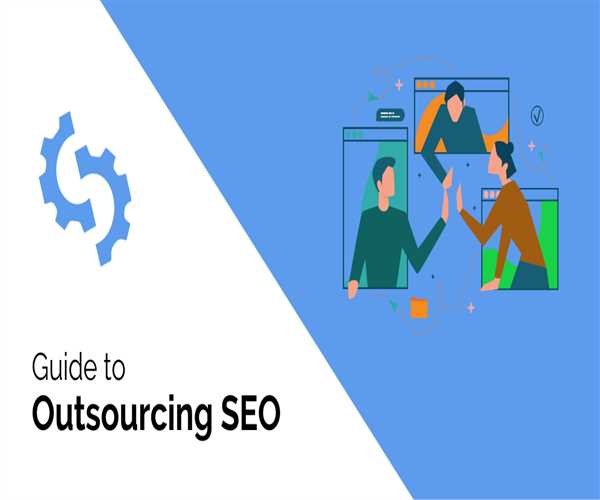
04-Jul-2023 , Updated on 7/4/2023 5:03:10 AM
Explore the step-by-step guide to outsourcing SEO
Highlights
1. Define your SEO goals- Determine what specific aspects of SEO you want to outsource and the desired outcomes. Research and shortlist SEO agencies or freelancers: Look for reputable providers with relevant experience, positive reviews, and a track record of success.
2. Set a budget- Establish a realistic budget for your SEO outsourcing project to ensure you can afford quality services.
3. Define your scope of work: Clearly outline the tasks, responsibilities, and deliverables you expect from the SEO provider.
4. Request proposals and conduct interviews- Send a request for proposals (RFP) to shortlisted providers and evaluate their responses. Conduct interviews to assess their expertise, communication skills, and cultural fit.
5. Evaluate their SEO strategy and techniques- Review the SEO provider's approach to optimization, including on-page, off-page, technical SEO, keyword research, and link-building strategies.
6. Check their reporting and analytics- Ensure the SEO provider offers regular reports and insights on the performance of your website, including keyword rankings, traffic, conversions, and other relevant metrics.

In the competitive world of online business, Search Engine Optimization (SEO) plays a crucial role in driving organic traffic to websites and increasing their online visibility. However, implementing effective SEO strategies requires expertise, time, and resources. That's where outsourcing SEO services can be a game-changer. This step-by-step guide aims to provide a comprehensive overview of outsourcing SEO, helping you make informed decisions and maximize the benefits of this powerful marketing strategy.
Step 1: Define Your SEO Goals
Before outsourcing SEO, it is essential to clearly define your goals and objectives. Determine what you want to achieve through SEO, whether it's increasing organic traffic, improving search engine rankings, or enhancing your website's conversion rate. This clarity will guide you in selecting the right SEO agency or specialist that aligns with your business goals.
Step 2: Research and Shortlist Potential SEO Provider
Conduct thorough research to identify potential SEO service providers. Look for companies or professionals with a proven track record, positive reviews, and a strong online presence. Consider their experience, expertise, and the range of services they offer. Shortlist a few candidates that best match your requirements.
Step 3: Evaluate their Expertise and Strategies
Once you have a shortlist of potential SEO providers, evaluate their expertise and strategies. Review their case studies, client testimonials, and success stories to gauge their level of competence. Assess the techniques and tools they employ to optimize websites. Look for providers who prioritize white-hat SEO practices and follow industry standards.
Step 4: Consider Their Understanding of Your Niche
Every industry has its unique dynamics and challenges. It is crucial to find an SEO provider who understands your niche and target audience. They should possess knowledge about your industry trends, competition, and customer behavior. A deep understanding of your niche will enable them to tailor their strategies effectively and deliver better results.
Step 5: Request a Proposal and Cost Analysis
Contact the shortlisted SEO providers and request a detailed proposal that outlines their strategies, timeline, deliverables, and expected results. Analyze the cost structure and budget requirements, ensuring it aligns with your financial capabilities. While cost is a factor, don't compromise on quality. Select a provider that offers a reasonable balance between cost and value.
Step 6: Conduct Interviews and Seek References
To gain deeper insights into the SEO providers, schedule interviews with the finalists. Prepare a list of questions to understand their approach, methodologies, and reporting mechanisms. Additionally, request references from their existing or past clients. Contact these references to get an unbiased perspective on the provider's performance and customer satisfaction.
Step 7: Review and Sign a Contract
Once you have selected the most suitable SEO provider, review their contract carefully. Ensure it includes all the agreed-upon terms, such as scope of work, deliverables, timelines, reporting frequency, and confidentiality clauses. Seek legal advice if necessary. A well-defined contract protects both parties and provides a solid foundation for a successful outsourcing relationship.
Step 8: Collaborate and Share Access
For effective outsourcing, collaboration and clear communication are vital. Provide the SEO provider with necessary access to your website, analytics tools, and other relevant platforms. Establish regular meetings or check-ins to discuss progress, address concerns, and provide feedback. This collaborative approach will help align your strategies and ensure a seamless workflow.
Step 9: Monitor Progress and Performance
Regularly monitor the progress and performance of the SEO provider. Set key performance indicators (KPIs) and track them over time. Utilize SEO analytics tools to measure organic traffic, keyword rankings, conversion rates, and other relevant metrics. Assess the reports provided by the SEO provider and address any concerns or discrepancies promptly.
Step 10: Foster a Long-Term Partnership
Building a successful outsourcing relationship requires nurturing a long-term partnership. Continuously evaluate the SEO provider's performance and adapt strategies as needed. Keep the lines of communication open and provide constructive feedback to enhance collaboration. As your business evolves, discuss new goals and objectives with the provider to ensure their SEO strategies align with your changing needs.
Step 11: Stay Updated with Industry Trends
SEO is a dynamic field that evolves rapidly. To stay ahead of the competition, it's essential to remain updated with the latest industry trends and algorithm changes. Collaborate with your SEO provider to stay informed about emerging strategies, technologies, and best practices. Regularly review the performance of your website and make necessary adjustments to stay relevant in search engine rankings.
Step 12: Evaluate the ROI and Results
Regularly evaluate the return on investment (ROI) of your outsourcing efforts. Analyze the impact of SEO strategies on your website's traffic, conversions, and revenue. Compare the results against the initial goals and objectives set during the outsourcing process. If you are not achieving the desired outcomes, discuss the situation with the SEO provider and explore alternative approaches.
Outsourcing SEO can be a game-changer for businesses looking to enhance their online presence and drive organic traffic. By following this step-by-step guide, you can navigate the process of outsourcing SEO effectively. Remember to define your goals, research and evaluate potential providers, collaborate closely with your chosen provider, and monitor the progress and results. By forging a strong partnership, staying updated with industry trends, and evaluating ROI, you can unlock the full potential of SEO outsourcing and propel your business toward online success.

Student
Economics can be broken down into microeconomics, which looks at individual decisions, and macroeconomics, which is concerned with the economy as a whole. Both types of economics utilize historical trends and current conditions to inform business decision-making and make predictions about how markets might behave in the future. Students who choose to study economics not only gain the skills needed to understand complex markets but come away with strong analytical and problem-solving skills.
Join Our Newsletter
Subscribe to our newsletter to receive emails about new views posts, releases and updates.
Copyright 2010 - 2026 MindStick Software Pvt. Ltd. All Rights Reserved Privacy Policy | Terms & Conditions | Cookie Policy